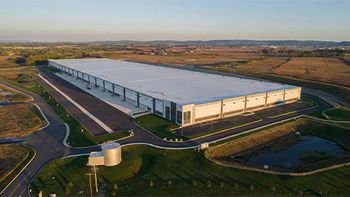
- Pharmaceutical Commerce - January/February 2012
California biotech CEOs want: more money; less FDA regulation
Preview of annual PwC survey finds that disease foundations and NGOs are a growing part of biotech investment
No surprise here: California biotech executives surveyed by PricewaterhouseCoopers (San Francisco) are being pinched by the lack of capital, and are exploring alternative sources of funding. At the same time, 80% of them agree that “Current FDA regulatory approval process has slowed the growth of their organization.” The California Biomedical Industry Report, conducted annually by PwC’s Pharmaceutical, Medical Device and Life Sciences Group, with the participation of the California Healthcare Institute and BayBio, the San Francisco trade association.
“Biomedical companies have long relied on government grants and venture capital,” said Tracy Lefteroff, national life sciences partner, PwC US. “Alternative sources of funding are emerging, which highlight shifting opportunities and dynamics in life sciences innovation.” The survey found that funding sources are evenly divided among government grants, angel investors, venture capital and licensing agreements and partnerships to date. Going forward, double the number of CEOs (44%) say licensing/partnerships and triple the number (30%) say corporate venture funding will be a source of finance in the next 12 months. Also, PwC notes that “though still only a small contributor to the finance equation, disease foundations and nongovernmental organizations (NGOs) are growing as a funding source,” with 11% of CeOs mentioning that source as compared to 4% in 20111. Further evidence of the maturation of the biotech industry is that 81% of CEOs also look at insurance coverage and reimbursement issues as important to the industry’s ability to innovate.
On the regulatory front, 80% of CEOs say that they do not believe that the US FDA “has the best regulatory approval process in the world,” and three-quarters believe that the US biotech “ecosystem” could be recreated in another part of the world—although where that magical place would be is left unsaid. “Sound public policy and managerial and operational improvements at FDA, along with responsible congressional oversight, will encourage biomedical innovation and, ultimately, job growth here in California,” said David Gollaher, PhD, CEO of the California Healthcare Institute, sounding a familiar theme in this election year.
The PwC report was previewed at a meeting in San Francisco; the full report will be available in February.
Articles in this issue
almost 14 years ago
Manufacturers are reviving their serialization plansalmost 14 years ago
HDMA updates its barcode guidance for wholesaler membersalmost 14 years ago
UPS Healthcare Logistics adds to network with an Italian acquisitionalmost 14 years ago
Gartner 2011 Healthcare Supply Chain Top 25 puts Cardinal Health at No. 1Newsletter
Stay ahead in the life sciences industry with Pharmaceutical Commerce, the latest news, trends, and strategies in drug distribution, commercialization, and market access.




